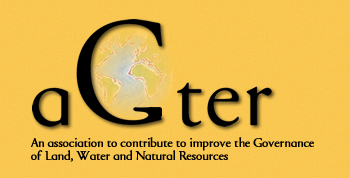|
|
|||||||||||||||
|
|
Clearly, what is at stake is a model of development that is inclusive, rather than exclusive. (...) Both the state and international agencies have to come to terms with the fact that their policies will fail to survive if they continue to benefit the few at the expense of the majority. To make international economic policies and civil society ‘work for all,’ new paradigms that include all, need to be developed. The voices of citizens from across the globe show that alternatives to prevailing policies exist and can be created. It is this shared global experience that has, hopefully, revealed to us a variety of possibilities and lessons for the future of land reform.
Interview with the Deputy Executive Director of Star Kampuchea Cambodia, at the World Forum on Access to Land (WFAL), 2016 (Valencia, Spain).
Neth Prak, spokesperson ot the Bunon Indigenous People Asociation (BIPA). Cambodia tells us about the loss of the ancestral territories of the Bunong people, the destruction of indigenous cultures. But it is not only a problem of the natives, it is a problem for the whole of humanity. |
|||||||||||
AGTER. Addres: 45 bis, avenue de la Belle Gabrielle, 94736 NOGENT SUR MARNE CEDEX, FRANCE
Telephone: +33(0)1 43 94 72 59 / +33(0)1 43 94 72 96
E-mail: agter@agter.org




